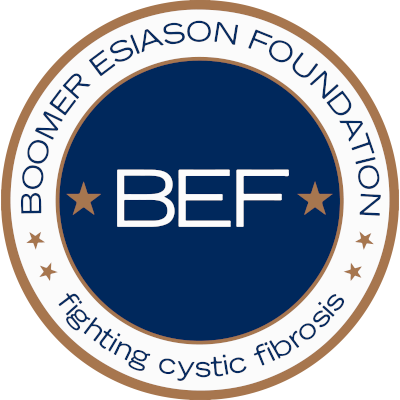Inspire Pharmaceuticals, Inc. announced today that Inspire scientists and collaborators will present data on denufosol tetrasodium, an investigational therapy for cystic fibrosis (CF), during an oral presentation at the American Thoracic Society (ATS) 2010 International Conference May 14 – 19, 2010 in New Orleans, LA. The data suggest that denufosol, an inhaled ion channel regulator, has properties that allow it to reach and improve lung function in the small airways, which may support its potential as an early intervention therapy.
“It is well known that cystic fibrosis lung disease begins in the small airways; however, there has been limited research into treatments that reach these areas of the lungs,” said Felix Ratjen, M.D., Ph.D., Professor of Pediatrics and Division Chief, Respiratory Medicine, University of Toronto, and lead principal investigator of TIGER-2. “Since pathological changes in small airways of CF patients are seen as early as six months of age, and mandatory newborn screenings in all 50 states means earlier diagnoses, there is strong need for early intervention treatments in the CF community right now.”
Inspire’s oral presentation, “Denufosol Tetrasodium – An Investigational Inhaled Therapy with Aerosol and Pharmacokinetic Properties Suitable for Early Intervention in CF Lung Disease” (T. Navratil, C. Evans, A. Schaberg, F. Johnson, T. Durham, L. Smiley, N. Herje, B. Burke, C.L. Ren, F. Ratjen, R.B. Moss, F.J. Accurso), will be presented in the Morial Convention Center, Room 391-392 (Third Level) during the session, “D94 Cystic Fibrosis: From Clinic to Lab and Back,” on Wednesday, May 19 from 3:00 – 3:15 pm CST. The presentation highlights clinical data from Inspire’s first Phase 3 clinical trial with denufosol, TIGER-1, and data from in vitro testing. Such in vitro data suggests that denufosol, as a result of its aerosol and chemical characteristics, has the potential to reach the small airways of the lungs, where CF lung disease begins. The potential of denufosol to reach the lung’s small airways was supported by a post-hoc analysis of the TIGER-1 trial, which showed a significant improvement relative to placebo in FEF25%-75% (Forced Expiratory Flow) in a subgroup of patients (n=329) with baseline FEV1 (Forced Expiratory Volume in One Second) less-than or equal to 110% predicted normal (p=0.025). In the TIGER-1 trial, following inhalation, there was little to no evidence of systemic exposure to denufosol and no evidence of accumulation as measured by plasma levels. In the trial, denufosol was well-tolerated and had a favorable safety profile.
“The analysis from this study suggests that denufosol may have the potential to target the lung’s small airways, with little to no systemic exposure, making it a potentially promising treatment for early intervention in CF,” said M. Lynn Smiley, M.D., Chief Medical Officer of Inspire. “In developing denufosol, we hope to change the course of CF by providing an early intervention strategy to lessen the destructive and irreversible effects of the disease, regardless of CF genotypes.”
The Company also provided two additional poster presentations given at the ATS Conference. The poster presentation, “Concomitant Medication Use in Patients with Mild Cystic Fibrosis Lung Disease Assigned to Placebo in a Phase 3 Clinical Trial of Denufosol (Study 08-108/TIGER-1)” (T. Durham, T. Navratil, A. Schaberg, C. Deans, L. Smiley, N. Herje, G. Retsch-Bogart, F.J. Accurso), examined the concomitant medication use in young, relatively mild CF patients to treat respiratory conditions resulting from CF, which involved treatment with inhaled, intranasal, oral and IV medications. Data analyzed from a sample of 175 CF patients who received placebo in the TIGER-1 trial showed that more than 72% of patients used at least five concomitant medications for the treatment of their CF lung disease. New disease modifying treatments that are targeted towards addressing the basic defects of CF lung disease pathophysiology may reduce the need for the extensive polypharmacy.
Inspire also presented a poster presentation entitled, “Chronic Inhalation of Denufosol Tetrasodium Aerosol is Non-Inflammatory in Rodent and Canine Respiratory Tract Tissues” (M.S. Cowlen, R.S. Verhoeven), which showed that in the required one-year and two-year pre-clinical studies, denufosol did not increase background levels of pulmonary inflammation compared with isotonic saline following daily inhalation.
These presentations will be available on Inspire’s website, www.inspirepharm.com, following the conference.
Source: Inspire Pharmaceuticals Inc.
